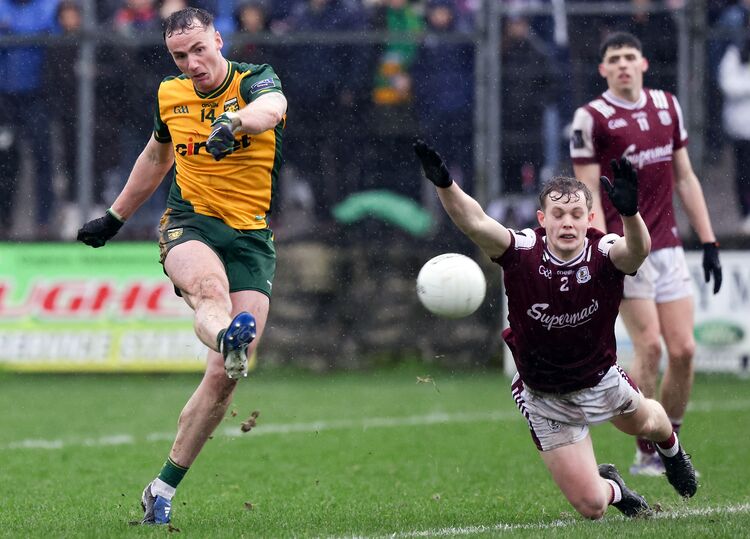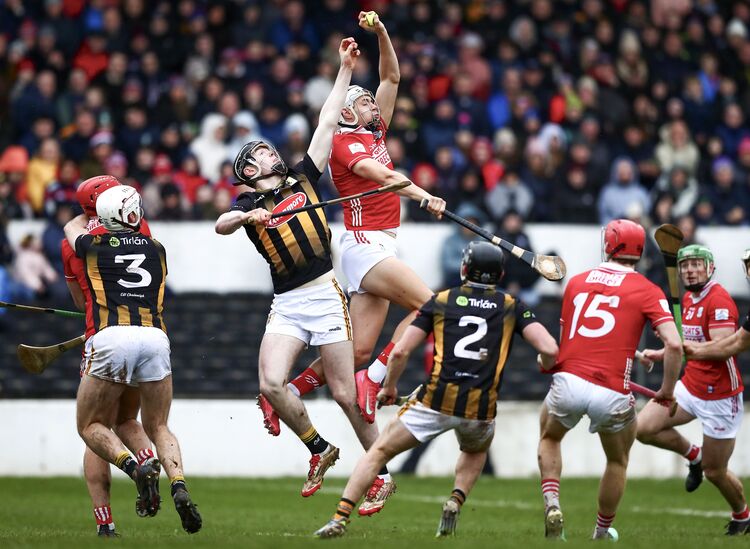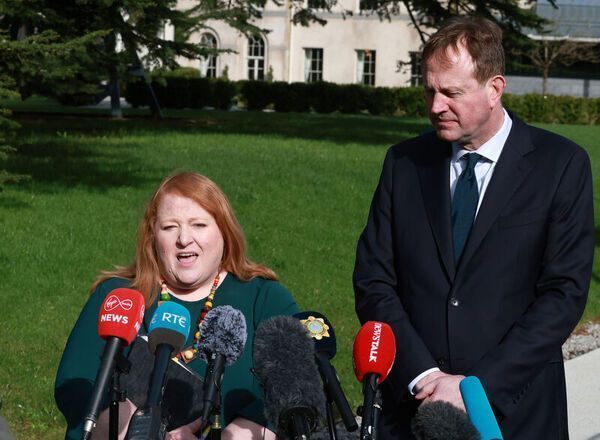[caption id="attachment_71537" align="aligncenter" width="600" caption="Lawrence Welsh and T.J. English. Photo by Erick "Chuco" Chavez. "]
As a neighborhood white boy, I learned early in life that only one goal ruled the streets, and that was to survive them. But the question remained: could one endure the war zones of South Central Los Angeles in the late 1960s and early 70s?
The answer, in part, was yes, but only through alliances formed with other families in the neighborhood; people like us who often carried an immigrant's rank.
With our Irish immigrant mother and Irish American father, our place remained as first generation Irish American children. For our friends and allies, it often shaped up as first generation Mexican Americans.
Together, we shared the bonds of St. Michael's Catholic Church, while our Irish and Mexican parents bonded over homemade tamales, Irish soda
bread and the joys and sorrows of Irish whiskey.
When gangs such as The Crips and Bloods overtook the streets, our alliances brought us even closer, and we were often found in groups marching through the streets of South Central on our way to and from school, with the gang screams and echoes of, "Look at those white boys; we're going to kill them," reverberating in our ears.
Those words, to this day, unfortunately, still bring up images of terror, gang warfare and my spilt blood.
With that backdrop, I was a bit stunned a few years ago when I learned that a group had formed in New York City called the Irish Mexican Alliance. At its first event, the organization raised money for legal assistance to Mexican journalists forced to flee Mexico and seek asylum in the U.S. due to threats and the murder of fellow journalists in Mexico.
Staged in Manhattan, the fundraiser concert was a huge success, with Chicano and Irish poets, Celtic and Mexican music and guest speakers. Most importantly, an all night dance party occurred where people moved and grooved to the Irish and Mexican sounds.
A few months ago, I got the word that the next event would occur in El Paso, Texas, my home for the past 19 years. A sense of pride welled up in me when I realized I could stand "officially" in solidarity with the cultures I had embraced my entire life.
Through the tireless work of New York Times best-selling author T.J. English and Valentin Sandoval, a local poet, filmmaker and co-producer, the event buzz started to spread, and stories appeared in local newspapers and on radio shows.
El Pasoans, always an open people, learned that the alliance was founded on the concept that there is a special connection between Irish and Mexican people, and that this bond can be used as a positive force for social change.
English and Sandoval, both in print and over the airwaves, said that the alliance is rooted in history, specifically the history of the San Patricio Battalion, a group of mostly Irish American soldiers who, during the U.S. Mexico War of 1845-47, deserted the U.S. Army to fight on behalf of the Mexican people. The San Patricios were captured, and many were found guilty of treason at U.S. military tribunals and executed by hanging.
On April 28, the day of the El Paso event, a sense of dread sunk in as I was filled with questions. What if no one shows? What if people stay away and won't support the alliance on the border? What if our New York brothers and sisters travel home with a poor view of my West Texas home?
My fears started to calm when I spotted English outside the historic San Carlos Building in downtown El Paso. Reverently cradled in his arms was the battle flag of the San Patricio Battalion, a brilliant green flag with a harp, the Mexican coat of arms and the slogan "Erin go Bragh."
As he carefully unfolded the flag, English was joined by Sandoval. Together, they took pride in carefully hanging the flag on the side of the stage. A few minutes later, the party began with a lively set by the San Patricios, El Paso's own Irish/Mexican traditional music group. After that, Ashley Davis, an Irish American singer who flew in from New York, took control of the crowd with folk songs sung in both English and Irish. The pace never lagged the entire night, as poets Bobby Byrd, Griselda "La Rana," Myrlin Hepworth and Chicano legend Jimmy Santiago Baca took the stage and shouted and whispered words of struggle, repression, colonialism and survival in current day Mexico and the U.S.
El Paso singer/songwriter Velia Christina also took the stage and filled the air first with her own riveting songs in Spanish and English. Later, she joined Davis and sang several verses of the Irish classic "On Raglan Road" in Spanish.
As the night progressed and the half-moon rose over downtown El Paso, people kept streaming in until the outdoor space was filled to capacity. El Paso-based groups, including Mexklan and Radio Las Chusma, kept the crowd up and on its dancing feet.
"I'm thrilled," I whispered to English and Sandoval around midnight, as I watched Frontera Bugalu, a local band, cast an almost eerie spell of cumbias and Norteno rhythms. "It's a huge success. El Paso has embraced the alliance."
At 1:15 a.m., English took the stage for a final time. He was happy and contented, and carried the final axiom of the evening: "Borders don't really exist for musicians and artists, and tonight we're all members of the Irish Mexican Alliance."
A few minutes later, music filled the air again, and the revelers continued dancing.
On the way home, surrounded by my longtime friends, Erick "Chuco" Chavez and Chris "Big Red" Smith, I couldn't help think that we were all in the alliance now, even my one-time enemies on the streets of South Central Los Angeles.
For with new and old alliances, we learn to enter the mindset that we're all essentially of the same people, and to survive and prosper we must embrace our one humanity.
There are rumors now that the next alliance event may take place on the West Coast, maybe even in Los Angeles. Without doubt, those streets could still benefit from a little alliance healing.









